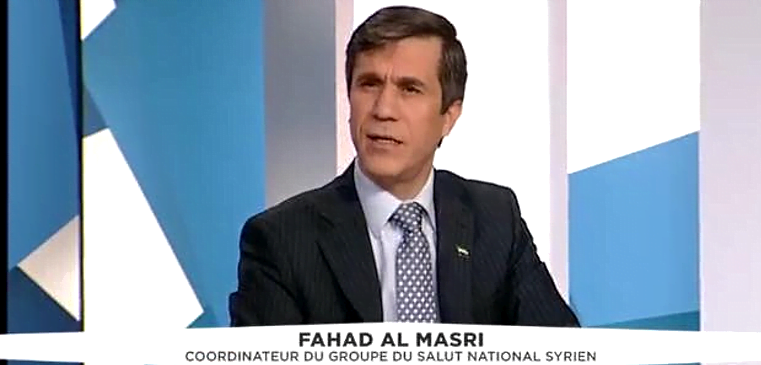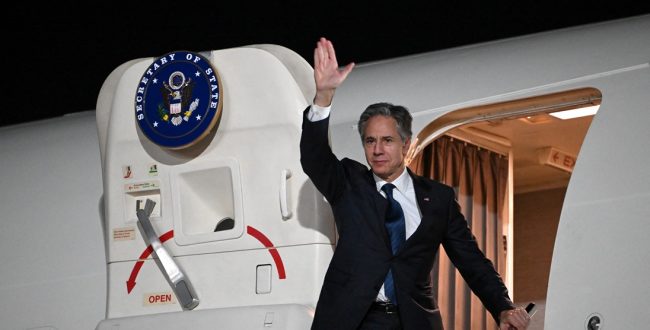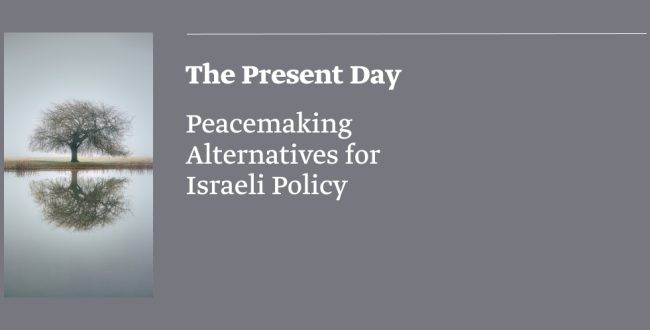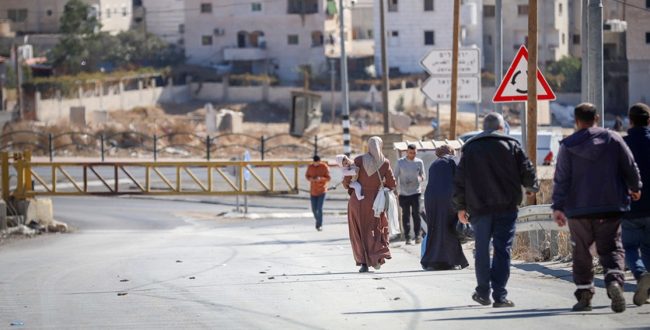Since the Arab Spring began in 2011, Syrian and Iraqi activists, some of them immigrants, have reached out repeatedly to me and to other Middle East researchers and activists in Israel, proposing cooperation with Israel. While the requests related initially to humanitarian aid, they soon developed into political discussions about Israel’s role in the Middle East, the possibility of economic and security ties, and other issues.
The requests came in waves, depending on how bad the situation was across the border. They increased as Israel began to treat more and more wounded Syrians, and especially after the IDF instated the Good Neighbor directorate to oversee civilian aid to Syria. We were contacted much less after Assad’s army regained control of southern Syria in the summer of 2018. When the latest protests broke out in Iraq, inquiries from Iraqi officials that had already been coming in increased.
While the initial motivation for reaching out was clearly the dire humanitarian and political situation in Syria and Iraq, this may also signal a new trend among important parts of society in these countries. Many of my colleagues and I passed on the suggestions for cooperation the to relevant government ministries. To the best of our knowledge, there was no response.
Politics and the evacuation of wounded persons
The civil war in Syria, which broke out in March 2011, raised some serious ethical concerns for Israel. Defense Minister Moshe Ya’alon declared that Israel would intervene only if certain ‘red lines’ were crossed, such as directly violating Israeli sovereignty, transferring ‘tiebreaker’ weapons to Hezbollah, or the transfer of weapons of mass destruction. However, as the fighting intensified, Israel could not remain passive. In February 2013, Israeli soldiers extended medical aid to Syrians who had been injured in the fighting between the opposition forces and the regime, including combatants. They were treated at the border and then transferred to hospital in Israel. By the end of the war, more than 6,000 Syrians had been treated in Israel – combatants and civilians injured in battle, children who needed routine treatment, women, the elderly, people with serious illnesses, and even transplant patients. In June 2016, this mechanism was formalized under the “Good Neighbor” military directorate.
The humanitarian aid opened the door to dialogue with Syrian opposition members. What started out with medical and logistical coordination and helping civilians grew into a conversation about ties with Israel, peace, and the Israeli presence in the Golan Heights. One of the first Syrians to publicly call for dialogue with Israel was Amid (Brig. Gen.) Nabil al-Dandal, a senior intelligence officer who defected and joined the rebels in late 2014. In an open letter to then-Knesset Speaker Yuli Edelstein, he proposed formal dialogue between Israel and moderate Syrian opposition parties. “We, the Syrian regime, were wrong not to join in President Anwar Sadat’s initiative,” he wrote. “We can cooperate, we have common interests. Our true enemies are the Iranians and the Islamic fundamentalists. Israel has a responsibility for what happens around it. Israel must approach the Syrian people and not collaborate with tyrants”, he added.
Al-Dandal belongs to the Akidat tribe, one of the largest in eastern Syria. He was Ghazi Kanaan’s deputy in the infamous Lebanon branch of the Syrian intelligence, and was later promoted to a senior position in the city of Qardaha – the seat of the Assad family and the heart of the Alawite area in Syria. In long conversations, he appeared to be sincere and his desire for cooperation genuine.
Another Syrian who reached out to Israel around that time was Fahad al-Masri, an academic from a well-known family in Damascus who founded and headed the National Salvation Front. Al-Masri resigned from his position as official spokesman of the Free Syrian Army due to disagreements, but it is still closely tied to officers and commanders there. In conversation, he said that the National Salvation Front had some 15,000 supporters, including prominent opposition activists such as al-Dandal. Al-Masri recently sent us the FSA’s Declaration of Principles, which includes military and economic ties with Israel, security coordination, fighting Iran and terrorist groups, and deporting Palestinian organizations from Syria.
We also received inquiries from Syrian opposition activists such as Issam Zeitoun and Dr. Kamal al-Labwani, a physician from the town of Zabadani who, in the late 1990s, founded the Syrian Liberal Democratic Assembly and called for nonviolent resistance to the regime. Consequently, he was held for ten years in the infamous Saydnaya Prison, three of them in solitary confinement. He visited Israel in September 2014, after fleeing from Syria and finding refuge in Sweden. Al-Labwani advocates for dialogue between Israel and the Syrian opposition, in order to overthrow the Assad regime and later establish official relations between the two countries, and to jointly fight Iran and the Sunni radicalization driven by al-Qaeda and ISIS. Issam Zeitoun comes from the village of Mazra’at Beit Jann in the Syrian Golan Heights and has lived in Germany for a decade. He, too, has visited Israel. Since openly calling for ties with Israel, he has been threatened and Hezbollah supporters have targeted the city he lives in.
Al-Labwani and Zeitoun both proposed the establishment of a safe zone in the Syrian Golan Heights, with residents enjoying Israeli support and local militias of the Free Syrian Army operating in the area. One prerequisite would be an agreement with the United States, and later with Russia, to create a ‘no-fly zone’ to stop the Assad army from bombing opposition forces. Zeitoun presented his ideas at a conference on the civil war in Syria held at the Hebrew University of Jerusalem in January 2017.
The four activists mentioned here, and many others who sent us messages, are Sunnis who have been living outside Syria for some time and therefore feel freer to voice their thoughts. They view the Assad family and the ruling Alawites as a foreign power that has taken over Syria and allowed Iran and its Hezbollah supporters to dispossess the Sunni majority.
An invitation from Bedouin tribes in Iraq
Another ethnic group in the Syrian mosaic is the Bedouin tribes that live in eastern Syria and western Iraq. They see themselves as the original inhabitants of the area and consider the Alawite-Shi’ite-Iranian takeover of the ‘real Syria’ illegitimate. In recent years, my colleagues and I have been approached by senior sheikhs from the group of the Shamar-Jerba, Bani al-Baqarah, Na’imi and Tarqawi tribes, as well as senior members of the Akidat tribe mentioned above.
In 2017, a connection with the ‘union of Bedouin tribes in Syria and Iraq’ was formed through leaders who live outside the Middle East, and representatives even visited Israel. Recently, as the riots in Iraq intensified, a senior activist with the union sent us a list of ten points for cooperation. These include mutual recognition, signing a peace treaty, a mutual defense contract and driving Iran out of Syria and Iraq.
These messages, too, were passed on to relevant officials at the Ministry of Foreign Affairs, the Ministry of Defense, the Knesset Foreign Affairs and Defense Committee, the IDF and Israeli intelligence agencies. Some of those who contacted us, including Fahad al-Masri, are willing to accept a formal invitation to visit Jerusalem and meet publicly to establish good faith. To the best of my knowledge, Israel has refused any public or private meetings and is maintaining a no-contact policy.
There are several reasons for this. One is the trauma of the 1982 intervention in Lebanese affairs and the ensuing military and political complications, which were indelibly imprinted on the collective memory of the Israeli establishment. Another is that decision-makers tend to act if they can be credited with success during their term in office, which is unfortunately not the case here.
A third explanation is the perception of Israel as a ‘villa in the jungle’, which is leading the construction of more and more barriers and the fortification of Israel as an isolated stronghold that relies on brute force. The civil war in Syria, the danger of Salafia and Jihadia, and the growing unrest in Arab countries have all reinforced the view in Israel that ‘there is no partner’, leaving the use of force as the only solution. The regional upheaval is changing attitudes towards Israel not only among Arab regimes, but among its own Arab citizens. Yet the collective entrenched fear in Israel remains unchanged. When potential partners do emerge, they are treated with suspicion and contempt and their pleas for help or cooperation rejected.
Tough questions
We have been asked time and again whether ties with opposition forces in Syria and Iraq are feasible, whether they can be trusted and whether they have enough political power. Serious answers are hard to give. Arab countries do not hold referendums, certainly not about relations with Israel. Most reaching out to Israel from these countries is carried out in secret, or at a safe distance from the Middle East. Good faith is measured over time. Meetings with representatives both in Israel and abroad have given an impression of sincerity, serious intentions and courage. The power of these forces, certainly in the case of the Free Syrian Army-Southern Front, was enough to battle Syria, Russia, ISIS and Hezbollah for four years. All that time, they pleaded in public for Israel to help them fight oppression and terrorism.
The initial motivation was humanitarian and political, as discussed above. Yet the aid that Israel extended to southern Syria made a mark and helped dispel prejudice. The 6,000 or more wounded and sick Syrians treated in Israeli hospitals, as well as the thousands given blankets in winter and basic foods during Ramadan, have grateful relatives, friends and acquaintances. The Ba’ath regime’s sixty-year indoctrination against Israel has been powerfully undermined for tens of thousands of Syrians.
Treating individuals and groups reaching out to Israel as “Facebook tigers” or “Twitter stars” is wrong, both morally and from a utilitarian perspective. Our research on social media has identified trends that clearly run counter to the interests of Arab rulers, including the protest against oppression throughout the region and periodical sympathy that resurfaces towards Israeli developments. Opponents of normalization with Israel are criticized, not loud but certainly clear and in public. There is a new wind blowing, and Israel cannot afford to ignore it. Or should it sit around and wait for a public referendum in every Arab country?
Keeping the policy of no contact with the Syrian and Iraqi opposition is irresponsible. Israel must grasp the hands outstretched to greet it, and officially invite those elements interested in cooperation to visit. We must work together to promote shared interests, for Israelis and for the welfare of Arab communities in the Middle East. Doing so would save lives, and open up a new horizon for the region.
















